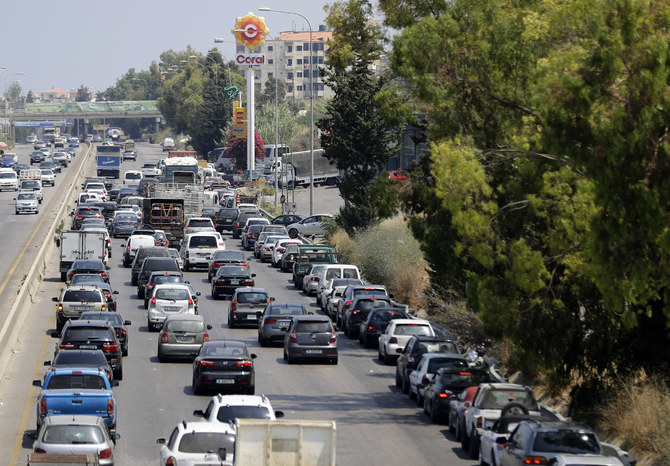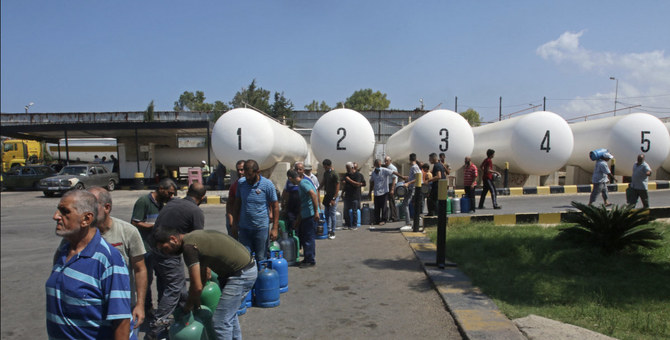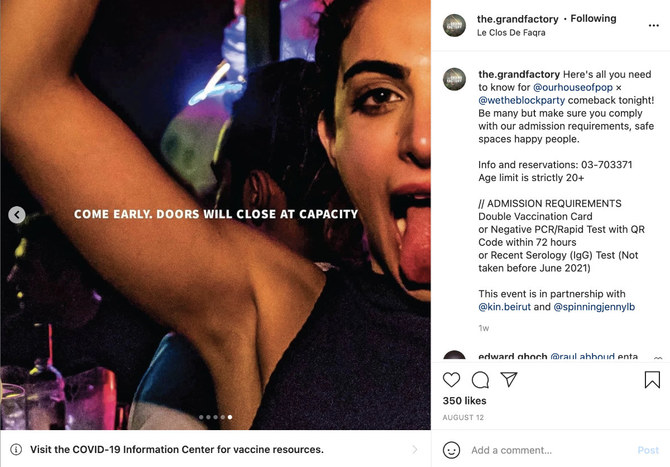BEIRUT: “How’s your Tuesday going?” reads the caption on an Instagram post, featuring a Lebanese woman sprawled on a sun lounger beside a glistening pool, showing off her tanned legs under a bright Beirut sky.
For most people in Lebanon, Tuesday was the same as any other day in recent months — hours spent waiting in line at the petrol station, queuing for subsidized food products at the supermarket, topped off by a long, sweltering night’s sleep on the balcony during yet another blackout.
But a brief scroll through the feeds and stories of numerous Lebanese Instagrammers reveals a world of lavish weddings, rooftop parties at venues where a bottle costs as much as a waiter’s monthly salary, and vacation getaways to Italy and Greece. At first glance, one would think the country is doing just fine. It is not.
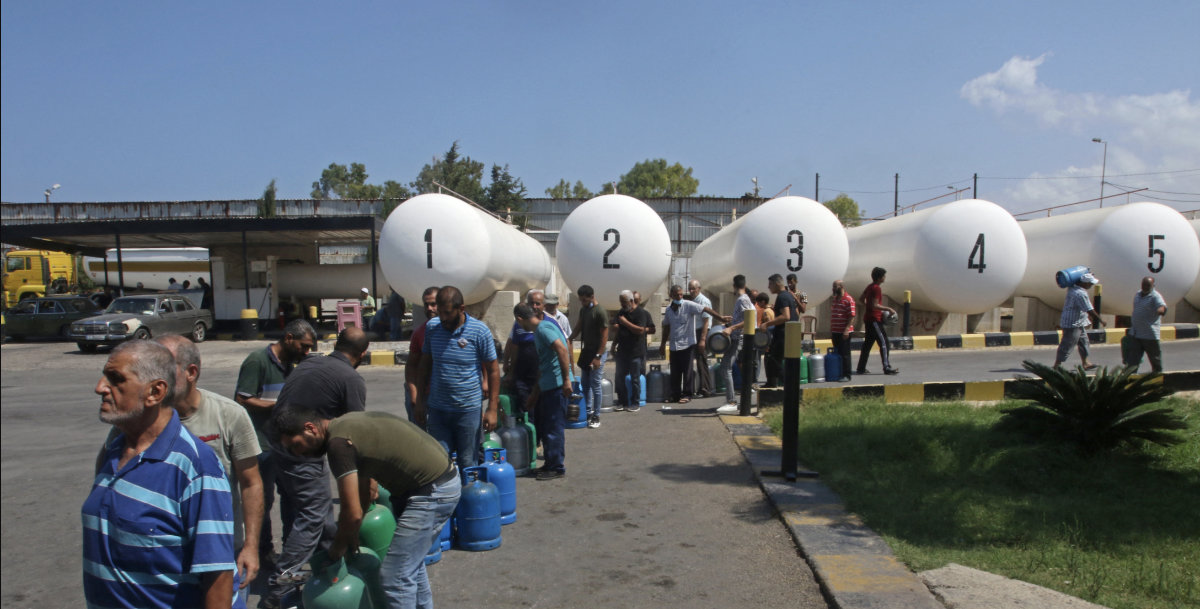
As the shortages in food, fuel and medicine in Lebanon worsens, no end in sight could be seen as the country's political leaders could not get their acts together. (AFP file photo)
World Bank data shows that Lebanon’s economy contracted by 20 percent over the course of 2020, with a further 9.5 percent contraction forecast this year. This makes the country’s economic crisis one of the world’s most severe — in relative terms — since the mid-19th century.
Coupled with the collapse of the Lebanese pound, which has lost more than 90 percent of its value on the black market, households that could once afford an annual vacation to Turkey or Cyprus can now barely scrape together enough to put food on the table.
“I think there’s a natural need for validation, especially for people that come from societies where the value of the self and one’s worth depends highly on social perceptions,” Selma Zaki, a licensed Lebanese psychotherapist, told Arab News. “Social media gives us that attention and that validation.”
Lebanon has had more than its fair share of problems over the years, from assassinations and car bombings to civil war and corruption, yet the Lebanese predilection for partying on regardless is globally renowned.
It has long been commonplace for members of the Lebanese elite to share social-media posts showing them in expensive clothes, attending weddings and birthday parties at luxurious venues and tucking into sumptuous meals.
With much of the country now grappling with chronic shortages of food, fuel and medicine, sweating in the darkness of another power outage, or surviving off charitable handouts, however, such displays of wealth and opulence, even online, are considered by most Lebanese to be in bad taste.
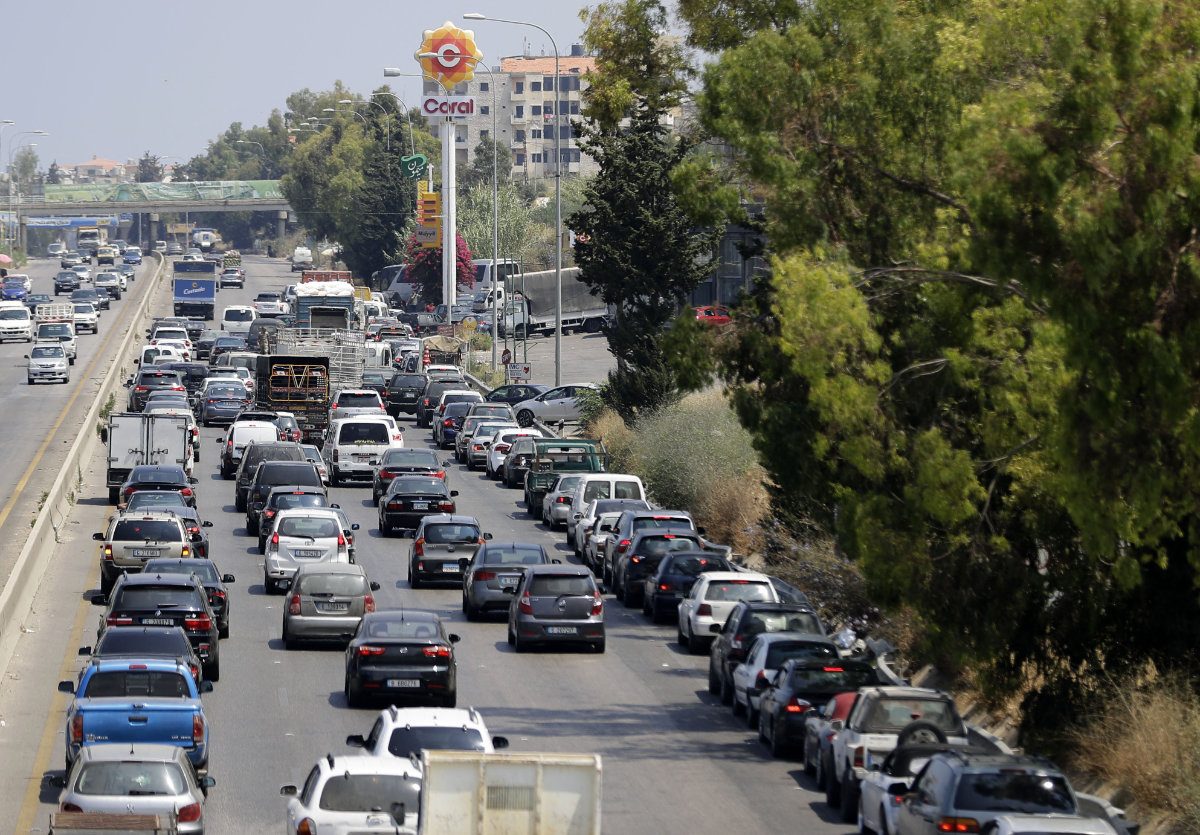
Vehicles queue up for fuel on the Beirut-Sidon highway, south of the Lebanese capital, amidt severe fuel shortages. (AFP file photo)
“I’m not sure a lot of people are taking into account the realities of others when they’re sharing such posts,” Zaki said. “They’re just thinking of their reality and they’re not empathizing with others, either because the reality can be (so) heavy and unbearable, or because they lack empathy.”
The phenomenon may well be a result of the perceived atomization of the Lebanese people’s sense of shared culture or identity. “People feel lonely in their suffering, and when we don’t talk about our collective suffering, they feel more isolated and alienated,” she added.
A clear fault line has emerged on social media, with Instagram users peddling a gaudy unreality and their Twitter counterparts speaking the unfiltered truth in 280 characters.
Beirut-based photographer Tamara Saade summed it up this way: “Lebanese Instagram: In between weddings and Greece, I go to the mountain and swim with dolphins … Lebanese Twitter: I haven’t had electricity or hot water in a week and can’t find Panadol … This country is nauseating. On every front.”
The contrast between assorted social-media platforms in Lebanon is so stark that comedian Farid Hobeiche, known better as FarixTube, decided to post a four-paneled image on Instagram that purports to convey the conflicting “realities.”
On Instagram, Hobeiche can be seen in a swimming pool; Facebook shows him in the dark carrying a candle (denoting the lack of electricity); on Twitter he is at a protest; and on TikTok, Hobeiche is dancing around irreverently.
Many Lebanese wonder, though, whether people who can afford to go out and enjoy themselves should be shamed for doing so. After all, any form of spending, even conspicuous consumption, in the current dire situation can only be a good thing from a purely economic standpoint.
“Everyone is free to do whatever they want as long as they come down (to the protests) and fight with us,” Médéa Azouri, a columnist at Lebanese daily L’Orient le Jour, told Arab News. “The thing is, I don’t like the fact that they’re posting on social media. Do whatever you want, but not like this, in our faces.”
In an act of solidarity with their less-fortunate compatriots, some Lebanese have opted to tone down their social-media capers since the economic crisis took hold.
“I honestly feel guilty because I know most of these people,” Nehme Hamadeh, a Dubai-based marketing executive, told Arab News. “But I’m also shocked that this continues despite all the signs clearly showing that our country has collapsed. How can one show one’s face and act like everything is fine? It’s not fine.”
Many overseas Lebanese grapple with the same profound sense of guilt at being so far removed from the day-to-day struggles of their home country.
“I also feel stuck, because I can’t go and point fingers if I’m part of the problem. It’s all very confusing, but I do know I am mostly frustrated by, and disappointed with, those people who post so mindlessly,” Hamadeh said.
Lebanon’s season of endless suffering has taken a turn for the worse of late. More than 200 businesses were forced to close their doors over the mid-August weekend owing to prolonged blackouts. Those who fled the heat of Beirut for the cooler climes of the mountains faced power outages there too.
Next, on August 15, a tanker used by the Lebanese Army to distribute seized fuel to residents of Akkar, an impoverished area near the Syrian border exploded, killing 28 and wounding 79.
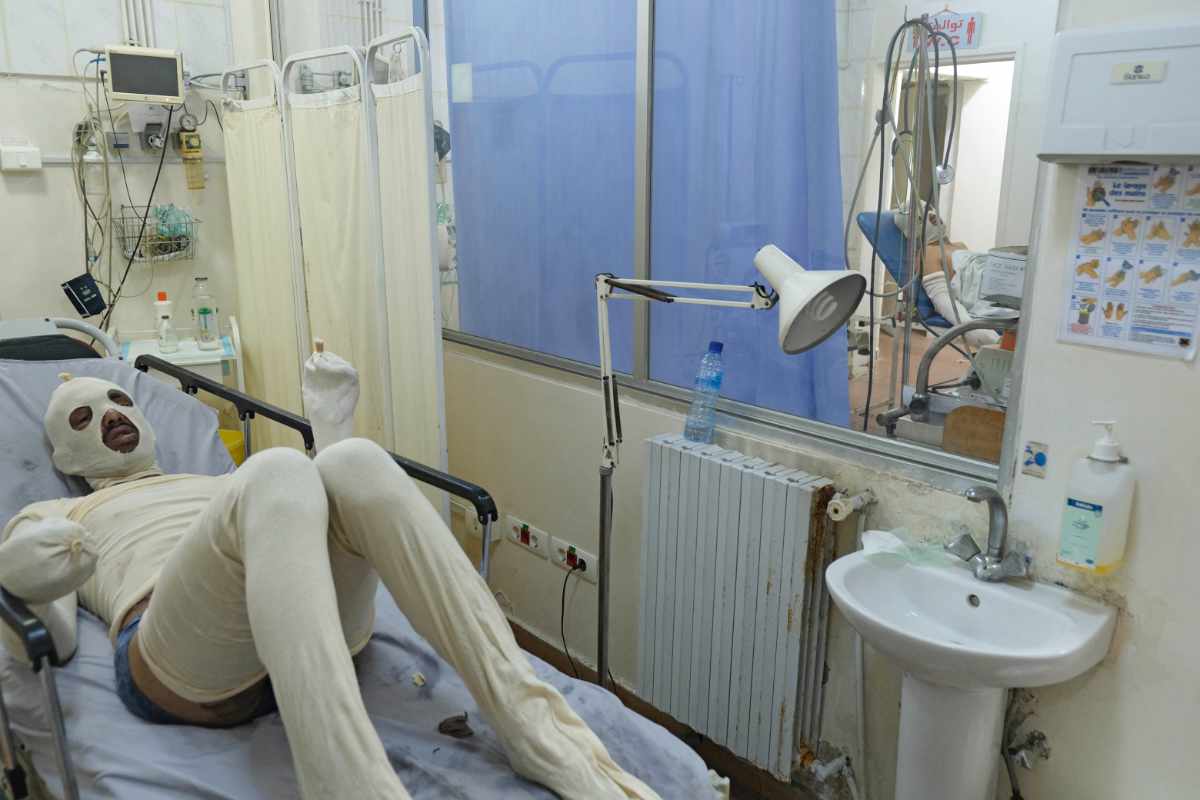
A man burned during a fuel tank explosion in Akkar, Lebanon, which is linked to the fuel shortage, lies in bed at the As-Salam Hospital in Tripoli city on August 15, 2021. (AFP)
Enraged protesters ransacked the Beirut home of Akkar’s member of parliament, Tarek El-Merehbi, and local residents banned all politicians from visiting the district. In the southern suburbs of Beirut, a petrol station was set on fire with a rocket-propelled grenade.
Dorothy Shea, the US ambassador to Lebanon, warned on Monday that the economy and its most basic services have reached the “precipice of collapse,” while politicians continue to bicker over concessions in cabinet.
For Lebanese Instagram users with a knack of filtering out the imperfections of real life, there is seemingly no limit to the amount of escapism that photos of parties at the beach and feasts in plush hotels can offer.
“If you didn’t post it on Instagram, did it even happen?” is a popular mantra of the social-media age. But in the case of Lebanon, it is the images that go unshared on Instagram that probably best reflect what is happening in the country today.
________________________
• Twitter: @Tarek_AliAhmad


